You can join the SKAP beta.





An experimental drug compound could prevent and treat some complications of diabetes, such as poor wound healing and rampant inflammation. And it works regardless of blood sugar control, a new study in mice and human cells suggests.
The cornerstone of diabetes care is keeping blood sugar in check through diet and exercise, by maintaining a healthy weight, and by injecting the hormone insulin to help shuttle glucose out of the bloodstream. But while maintaining blood sugar levels in a target range reduces the chance that diabetes complications will emerge, it doesn’t eliminate the risk.
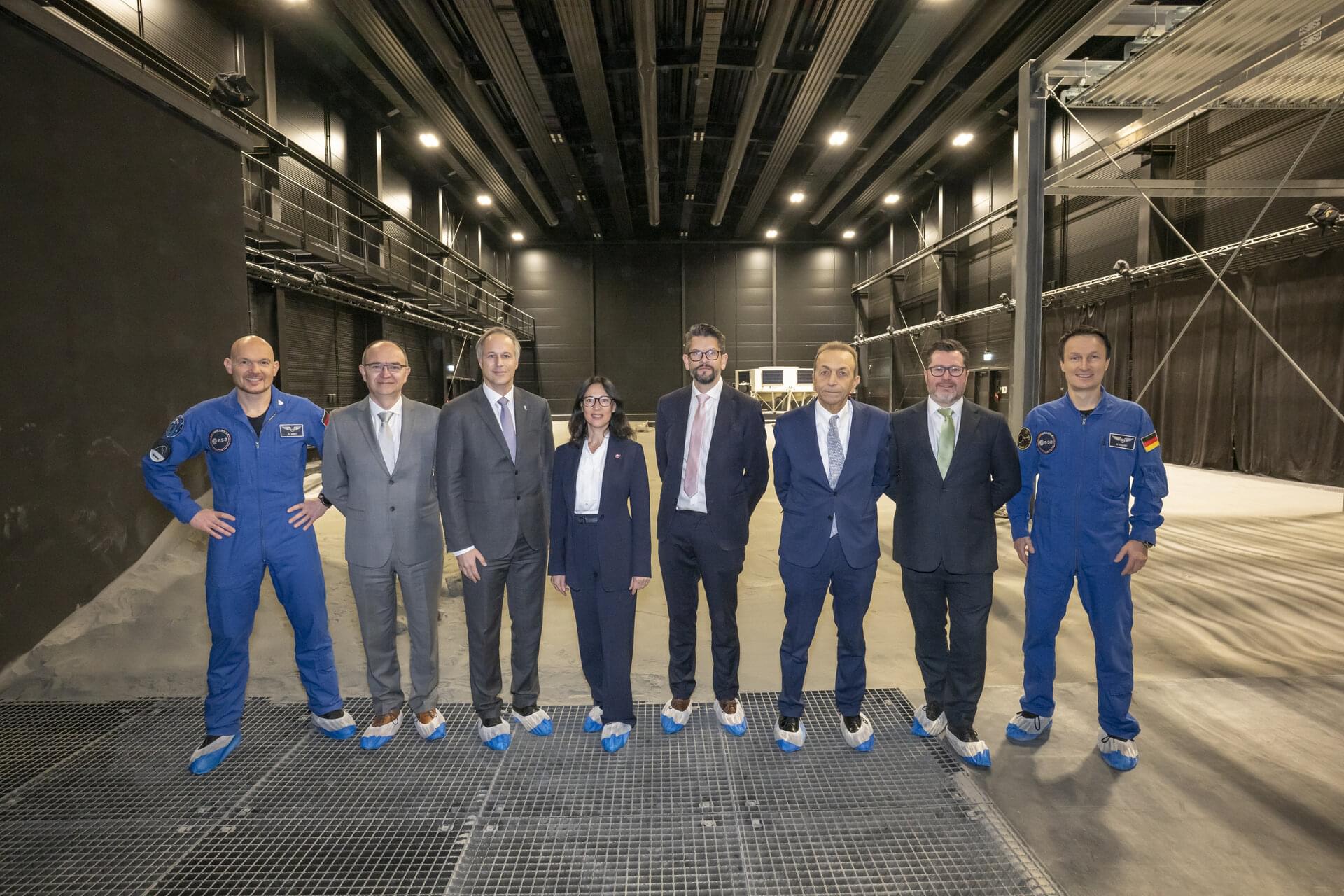
Today, the European Space Agency’s Argonaut lunar lander programme welcomes new members to its growing family. At ESA’s European Astronaut Centre (EAC) near Cologne, Germany, Thales Alenia Space Italy – the prime contractor for Argonaut’s first lander – signed agreements with Thales Alenia Space in France, OHB in Germany, and Thales Alenia Space and Nammo in the United Kingdom.
Argonaut represents Europe’s autonomous, versatile and reliable access to the Moon. Starting with the first mission in 2030, Argonaut landers will be launched on Ariane 6 rockets, each delivering up to 1.5 tonnes of exploration-enabling cargo to the Moon’s surface, from scientific instruments and rovers to vital resources for astronauts such as food, water and air.
Earlier this year, ESA selected Thales Alenia Space Italy to lead the development of the first Argonaut lander, or Lunar Descent Element. Today’s signing ceremony took place in a symbolic location: the LUNA analogue facility at EAC, home to a full-scale Argonaut model – a tangible vision of Europe’s future presence on the Moon.
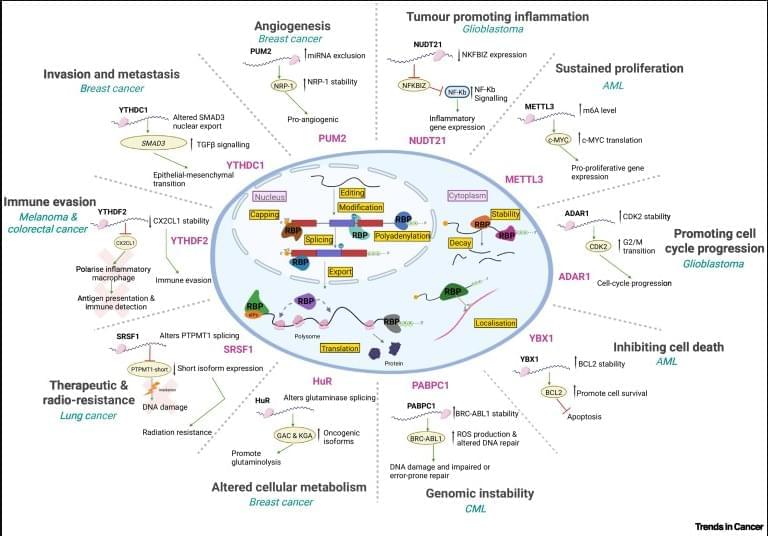
Plasticity of RNA-binding proteins in cancer.
Extensive research has shown that RNA-binding proteins (RBPs) can influence all cancer hallmarks via post-transcriptional regulation of gene expression.
Many RBPs are considered to be prognostic markers in cancer, and are emerging as important targets for therapeutic intervention through the development of drugs targeting RBPs.
Multiple RBPs play contrasting roles across cancer contexts and can facilitate or suppress cancer depending on the type, subtype, or stage of cancer.
The ability of an RBP to bind to a substrate, and the consequences of binding, are highly dependent on cell type-specific modifications of RBPs, their substrates, and interacting regulatory proteins and RNAs. https://www.cell.com/trends/cancer/fulltext/S2405-8033(25)00253-5 https://sciencemission.com/plasticity-of-RBPs-in-cancer
RNA-binding proteins (RBPs) govern RNA-based post-transcriptional processes that generate the abundance and diversity of the proteome. RBPs have recently emerged as crucial cancer regulators that can influence multiple cancer hallmarks. However, many RBPs display remarkable variations across different tumor types and can exert both tumor-promoting and tumor-suppressive effects. These opposing roles are often attributed to context-dependency, but there is a distinct lack of clarity regarding what aspects of cellular context define the differences in the roles of RBPs. Given the recent development of RBP-targeted interventions, resolving this significant gap in the field could improve the selectivity and specificity of RBP biomarkers and therapies in cancer.
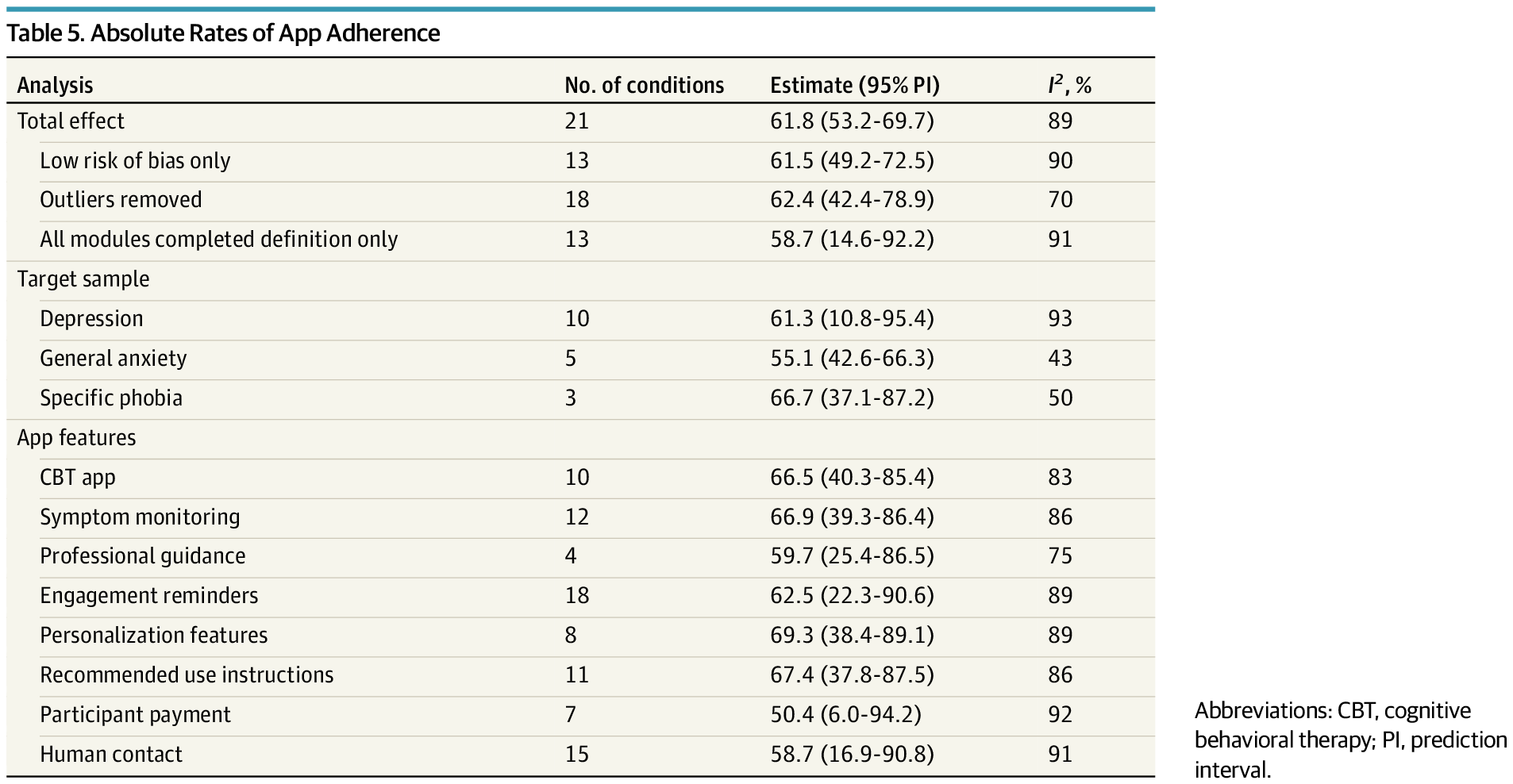
A meta-analysis of RCTs found high uptake (92%) but moderate adherence (62%) to mental health apps among participants with depression or anxiety; posttest attrition averaged 18% and follow-up attrition 28%. Trials that included reminders, human contact, and omitted gamification saw lower dropout rates.
Question What are the expected rates of uptake, attrition, and adherence in randomized clinical trials of mental health apps for depression and anxiety?
Findings This systematic review and meta-analysis of 79 randomized trials found high rates of app uptake (94%) and moderate adherence (62%) among participants with depression or anxiety. Posttest attrition averaged 17%, and follow-up attrition was 27%.
Meaning These findings highlight the need to optimize app design and trial protocols to improve engagement and reduce attrition in digital interventions for depression and anxiety.
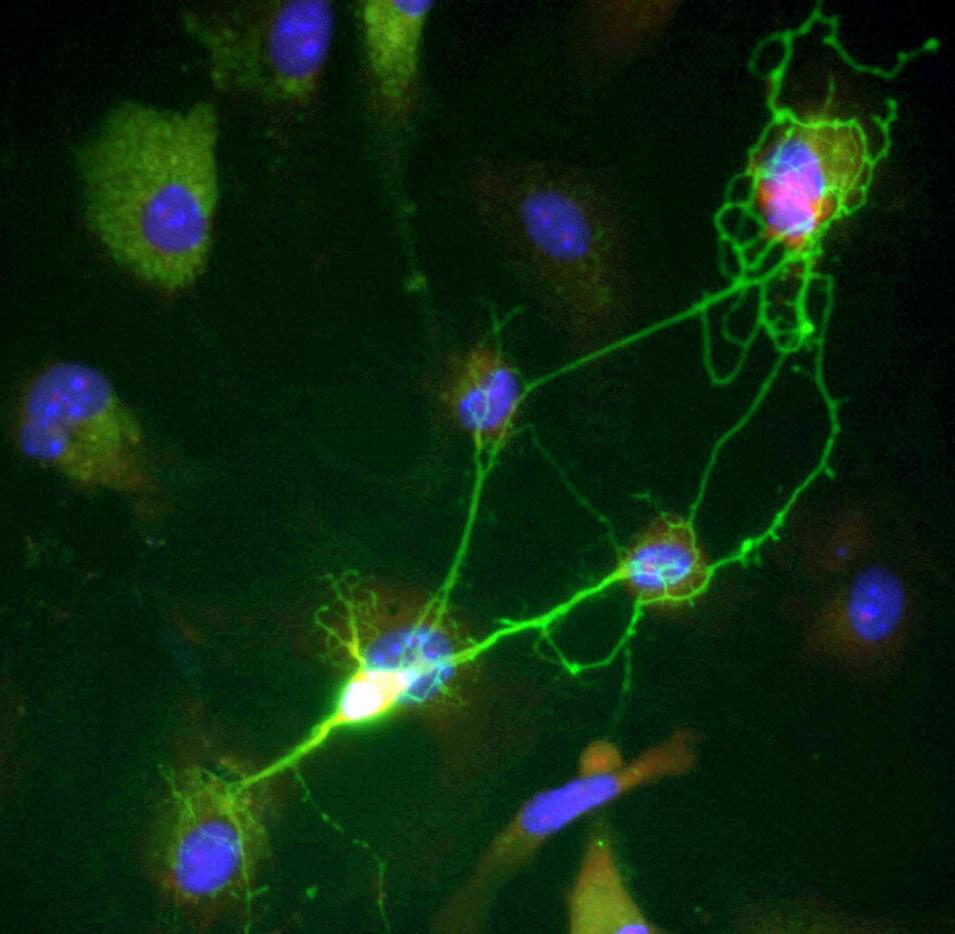
Researchers at Tulane University, with a team of colleagues from eight other universities, have discovered a new nerve cell signaling mechanism that could transform our understanding of pain and lead to safer, more effective treatments.
The study, co-led by Matthew Dalva, director of the Tulane Brain Institute and professor of cell and molecular biology in the School of Science and Engineering and Ted Price at the University of Texas at Dallas, reveals that neurons can release an enzyme outside the cell that switches on pain signaling after injury. The work, published in Science, offers new insight into how brain cells strengthen their connections during learning and memory.
“This finding changes our fundamental understanding of how neurons communicate,” Dalva said. “We’ve discovered that an enzyme released by neurons can modify proteins on the outside of other cells to turn on pain signaling—without affecting normal movement or sensation.”
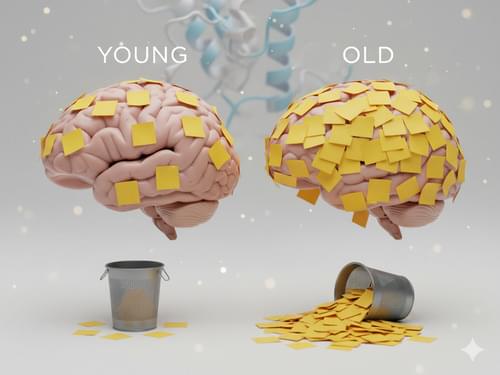
A study by the Leibniz Institute on Aging – Fritz Lipmann Institute (FLI) in Jena shows that the chemical composition of proteins in the brain undergoes fundamental changes with aging. In particular, ubiquitylation—a process that marks proteins and thus controls their activity and degradation—undergoes drastic changes in the aging brain. Interestingly, a change in nutrition, such as short-term dietary restriction, can partially revert some of these molecular patterns. These findings open up new opportunities to better understand the aging process of the brain and related diseases.
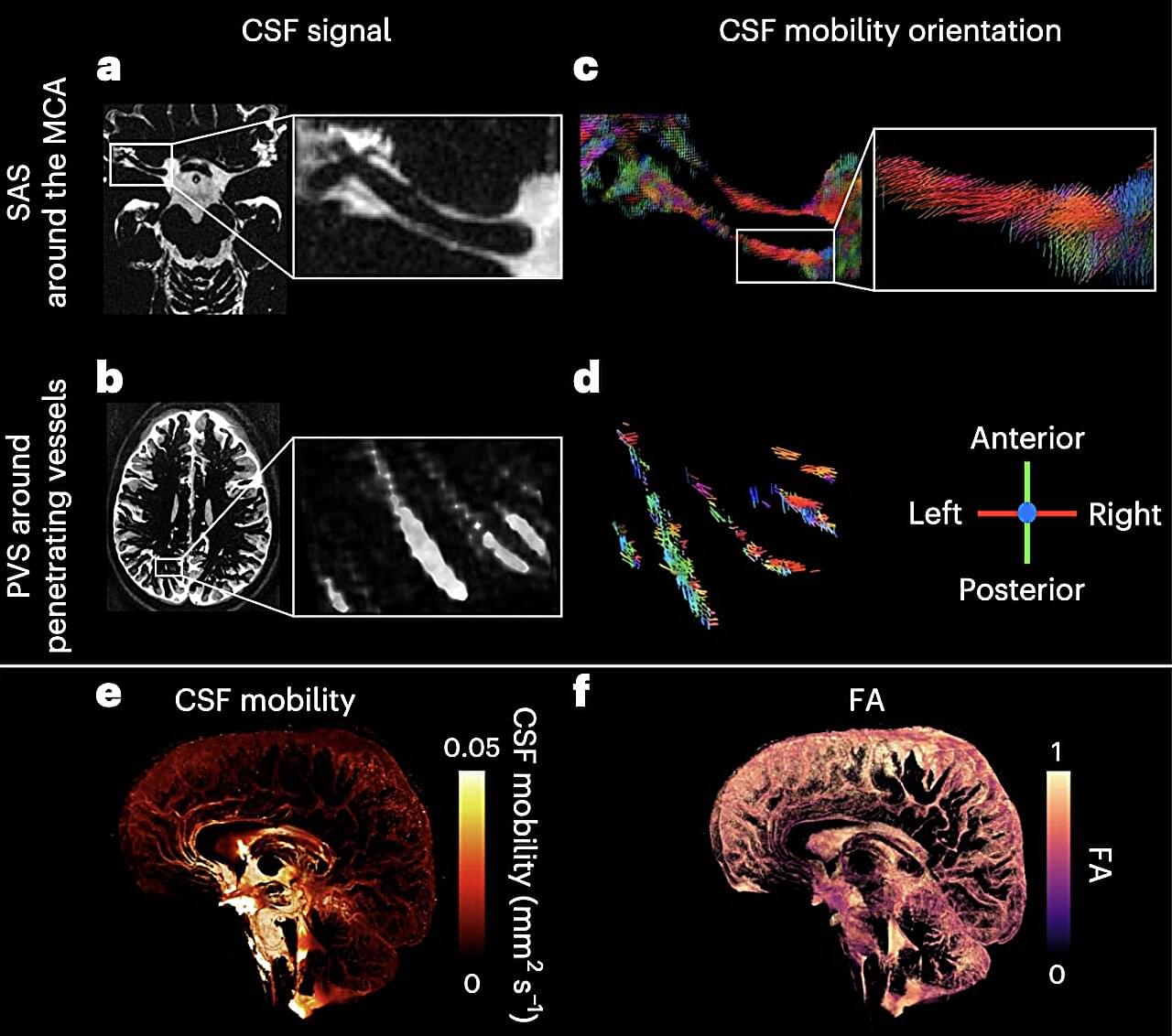
Cerebrospinal fluid (CSF) is a clear and watery liquid that flows in and around the brain and spinal cord. Its functions include protecting parts of the nervous system, delivering nutrients and removing metabolic waste.
Some neurological diseases, including Alzheimer’s disease, have been linked to the abnormal accumulation of proteins in the brain, which can cause damage to neurons. This accumulation of proteins could potentially be linked to variations in the flow of CSF in specific brain regions.
Researchers at Leiden University Medical Center, University of Amsterdam and the German Center for Neurodegenerative Diseases (DZNE) recently developed a new approach to study the motion of CSF, which is based on the widely used imaging technique magnetic resonance imaging (MRI).